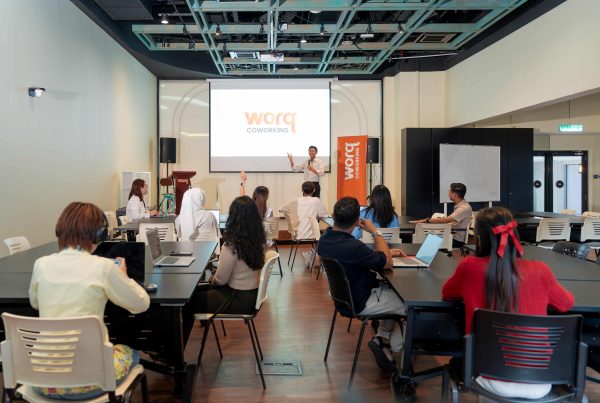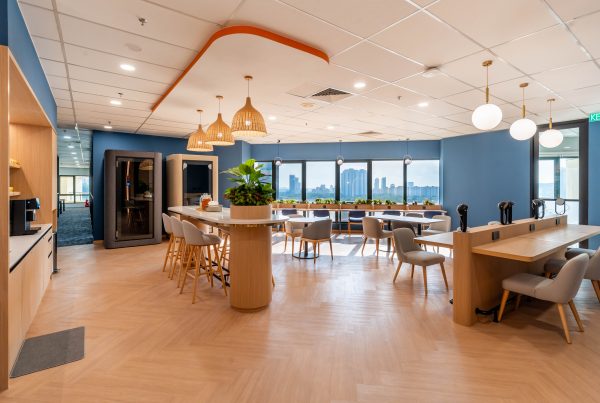In the fast-paced industry of entrepreneurship, having a supportive and collaborative community can make all the difference. Since its inception in 2017, WORQ has placed the community at its core, fostering connections between early-stage startups with established companies and SMEs to drive business growth.
Featured on BFM’s podcast “Open For Business,” we delve into the story of Stephanie Ping, the co-founder & CEO of WORQ, as she shares her background and the vision behind the thriving journey of WORQ.
Stephanie’s Entrepreneurial Journey
Stephanie’s journey as an entrepreneur began with her study at Stanford University, exposing her to the world of entrepreneurship. During her time in the United States, she witnessed the rise and fall of the dot-com industry, gaining invaluable insights into what it takes to succeed.
Returning to Malaysia with a purpose
After spending 14 years in the United States, Stephanie felt the urge to return to her home country, Malaysia. She realised that nothing beats having a sense of purpose, to contribute to her homeland. The strong ties to her family and the Malaysian community motivated her to make a meaningful impact.
Building WORQ
Upon returning to Malaysia, Stephanie founded WORQ with the intention of fulfilling her entrepreneurial aspirations and building a hyper-localized community where people can prosper by working together, much like the thriving startup community at Stanford University.
One of WORQ’s core objectives is to establish a community where entrepreneurs can come together, collaborate, and navigate the often challenging and isolating road of entrepreneurship.
Achieving Sustainable Growth for WORQ
Over the past few years, Stephanie and her team have been diligently building the business model for WORQ, focusing on profitability. Similar to the Amazon model, WORQ has invested in building the necessary infrastructure, enabling individuals and businesses to utilise real estate as a service in a flexible and on-demand manner.
WORQ has developed a thorough blueprint for expansion. With this well-established model, opening new outlets became a seamless process, ensuring profitability from day one. The scalability demonstrates its low-risk nature, as it effectively utilises a proven framework.
WORQ has successfully raised RM10 million in funding from several investors, including the Singapore independent fund management company – Philip Capital Management. This capital injection would be instrumental in executing the growth strategy. With the recent success of the launch of a coworking space in KL Sentral, WORQ plans to open more locations, catering to the increasing demand for flexible office spaces.
Partnering with landlords to turn vacant spaces into a coworking space
With a current oversupply of approximately 22 million square feet of office space, many landlords recognise the potential of partnering with coworking space providers. This strategic alliance allows landlords to focus on their core portfolio while benefiting from WORQ’s expertise in creating vibrant coworking environments.
The trend of incorporating coworking spaces into office portfolios is gaining momentum worldwide. Landlords in Western countries have already embraced this concept, allocating up to 25% of their office space for coworking purposes. The flexibility and convenience of coworking spaces make them an attractive solution for tenants and their workspace needs.
Stephanie Ping’s entrepreneurial journey with WORQ is proof of the potential of coworking spaces in the modern business landscape. By building a profitable business model, fostering strategic partnerships with landlords, and securing funding for growth, WORQ is continuing to thrive in the coworking industry.
To get a better understanding of this topic, we invite you to listen to Stephanie Ping’s insights showcased in BFM’s podcast.

BFM is the only independent radio station in Malaysia, dedicated to disseminating business news and current affairs. The objective of BFM is to strive for a better Malaysia by advocating for rational, evidence-centric conversations as a pivotal factor in shaping sensible policy-making.




